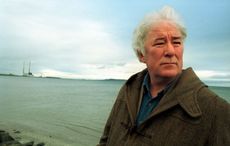The best year of my life was the one spent at home after my baby was born. For twelve idyllic months, with her father off at work, our girl was all mine, and I inhaled. Spectacularly high on new baby smell, I remember dancing around a house filled with sunshine and Van Morrison. I remember spending interminable hours just looking at her. Just. Looking. At. Her. I examined every tiny feature, every furrow, every flicker across her face, searching for resemblances to me, her father, her grandparents, and marveling that two imperfect people had made this perfection. She didn’t mind my hovering. Maybe she did, but this was before she had words or discovered those beautiful hands that fly with expression today. I called it hand ballet.
Mostly, Sophie bounced with curiosity and glee. When she cried, it was for food or comfort or just to let me know she was there. I couldn’t bear it. In spite of criticism from well-meaning friends, I was one of those mothers who would not let her baby “cry it out.” I picked her up the instant she began to cry at night. My mother encouraged me, reminding me the way Irish mammies do, that there would be plenty of times as an adult when my daughter would have to cry herself to sleep without me there to make it all better. When such desperate times have visited, I have found myself wishing that we mothers could bank all those hours of holding and comforting.
When the time came for me to return to work, I was unprepared for the crying – mine and hers – that preceded and continued after I deposited her in the waiting arms of Bonnie, the cheery classroom assistant at a Montessori school. Most of the other mothers didn’t appear to have jobs outside the home. Usually in shorts and Birkenstock sandals and – this was in the pre-Starbucks era – with mugs of coffee brought from home, they chatted in the parking lot. I might have given a vague impression of adulthood with my Anne Klein suits and my hair on the verge of sensible. I had returned to my career in public education trying to impress on someone – most likely myself – that I was “A Professional Working Mother.” I could do it all or have it all or something like that.
In spite of my sensible job, I did not impress Bonnie. Mortified and avoiding eye-contact with her, I’d hand over my wailing, flailing girl, and Bonnie would try to placate me with reassurances that Sophie would be just fine as soon as I was out of sight. If only I would just leave . . .
Although she had to say it a couple of times, Bonnie showed restraint, never once rolled her eyes as I stood there wild-eyed and fretting about the impending separation from my daughter. Irrational and crazed, I know, but I wanted my child to have Bonnie’s undivided attention. I wanted Bonnie to spend hours staring – as Madonna, mother of Jesus, not of Lourdes – at my beautiful girl, cheering with delight and recording on film and in writing when she did something – anything – for the first time. I was sad that I would miss the first time Sophie watered a plant in the school garden or threw a rock or cracked a nut or blew bubbles. I would miss telling my husband, my parents, my friends – just falling short of alerting the media – that Sophie had experienced another developmental milestone as when she had spoken her first word, or clapped her hands for the first time, or let go of my hand and stood straight like a little warrior to my ovation, “Sophie’s standing! Sophie’s standing!”
It’s true. I was madly jealous that it would be the magnanimous Bonnie – not me – with a magic trick up her sleeve that would charm my inconsolable daughter and make the crying stop. Walking away from the little girl writhing in the arms of “the other woman,” cleaved me in two. I’d pretend to leave but instead remained in the car with the air-conditioning on and the window down, torturing myself as I listened to the unmistakable sound of my child’s crying. At the same time, all the other mother’s children were crying. How, out of that early morning cacophony, could each of us pluck out the unique sound of our children’s specific anxiety? Daily, I would wait until the wails gave way to worn-out sobs and a final shuddering stop. Then I would reapply the make-up that I had cried away, and when my my face matched the boring business suit and no glimmer of guilt-stricken working mother remained, I went to work with other people’s children.
Around this time, I discovered Kathi Appelt‘s book, "Oh My Baby Little One." Like me, Appelt knew this anguish of leaving her child, and she relived it when her twelve year old son went off to summer camp. Bracing herself for how she would feel as he prepared to go off to college and inspired by the lovely “Sweet Sorrow in the Wind,” sung by Emmylou Harris, she wrote the book I would find on the discard table in a Barnes and Noble, when we still had a book-store in the neighborhood where I could also get The Irish Sunday Times albeit on a Wednesday.
Every night, I read to Sophie the story of Mama Bird who reassured Baby Bird that every day when she was off at work, her love – a little red heart – would still be with him. Magically, this love would slip inside his lunch box or sit on his shoulder during play-time or nestle on his pillow at nap-time. At the same time, it would curl around Mama Bird’s coffee cup as she went about her daily business.
And every night, before closing the book and kissing her goodnight, I would ask Sophie, “Where’s the love?” and she would tell me, as though it were a secret:
“All around, mama. The love is all around.”
How that lovely book eased those morning goodbyes when I left her with Bonnie or numerous other teachers throughout the years. There were too many of them. Never satisfied with her teachers because they never seemed to understand that I was her first teacher, that I knew her best, we kept switching schools. By the time she was in 2nd grade, my daughter had become a veritable tourist in the public education system, hopping from school to school, becoming ever more resilient, while I kept searching for the one teacher who would change her life as Mr. Jones had changed mine.
This morning, I packed a lunch for her, and slipped a note inside the brown paper sack the way I used to do. Watching as she strode to the car her dad used to drive, my heart cracked, and I lept forward to the month after next and the empty seat at her high school graduation. How I hate that he is missing this! In the same instant, I thought of the poem, "Walking Away," by Cecil Day Lewis who, while watching his eighteen year old son go off to school, wonders if :
“Perhaps it is roughly
Saying what God alone could perfectly show –
How selfhood begins with a walking away,
And love is proved in the letting go.”
I let her go, of course, and I pulled myself together and gave into the day – the way I must – knowing, as it released us to our respective distractions and mundanities, that it would unfold, providing delight or difficulty or both in unequal measure.
Sometimes, in an unguarded moment at work, between emails and meetings, in the middle of things that matter and things that don’t, I’ll wonder what she’s doing at school, and I’ll find myself smiling as I recall my three year old darling, fighting sleep with all her might and poring over Jane Dyer’s water-color illustrations, searching for the love that’s cleverly hidden on each page.
And I’ll remind myself that it is all around.




Comments